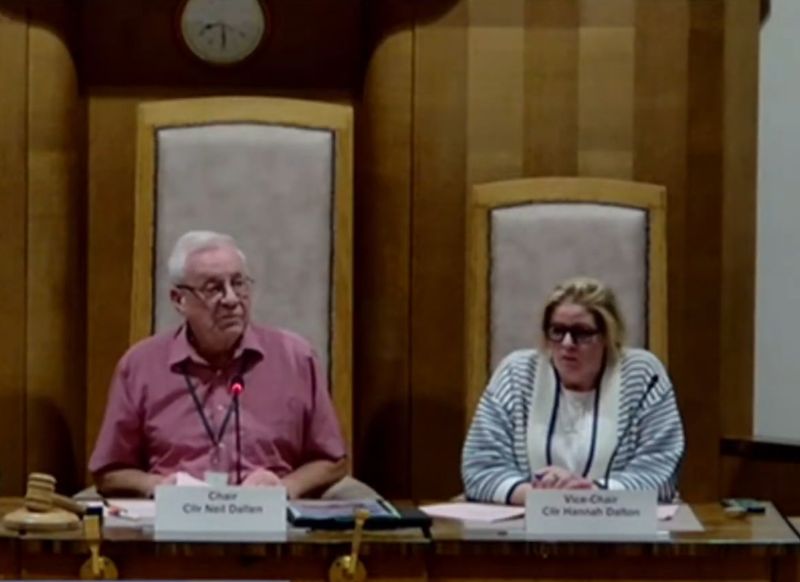Climate motion sparks energetic debate in Council
In a lively session at Epsom and Ewell Borough Council Tuesday 16th April, councillors engaged in a debate over a motion proposing a significant environmental mandate for future housing developments.
Councillor James Lawrence, (LibDem College) the initiator of the motion, emphasized the urgency of addressing climate change through stringent environmental standards in housing. He argued that aiming for the highest energy efficiency rating, Grade A of the Energy Performance Certificate (EPC) for all new house builds, would not only align with climate goals but also save residents money in the long run.
“I believe that this ambitious policy would allow us to more effectively design the housing of the future, both saving residents money and meeting our climate goals and saving energy in the long run,” Councillor Lawrence asserted.
However, concerns were raised regarding the practicality and affordability of such a mandate. Councillor Alex Coley (RA Ruxley) queried the feasibility of implementing the requirement and its potential impact on housing affordability.
“How much would these homes cost and to what extent would that mean that less affordable and social housing is built because of the cost of these elite homes?” Councillor Coley questioned.
Councillor Phil Neale, (RA Cuddington) drawing from a construction background, echoed similar sentiments, highlighting the challenges developers would face in meeting such stringent standards without significantly increasing housing costs.
“In reality…to provide housing of above A, which is what is being asked in this motion, is impossible,” Councillor Neale argued, stressing the need for practical solutions to address the housing shortage.
Amidst the debate, Councillor Kim Spickett (RA Cuddington) urged a nuanced approach, emphasizing the importance of considering the impact on families and advocating for a stable efficiency metric in EPC ratings.
“The focus of an EPC headline metric needs to be on reducing demand through a stable efficiency metric,” Councillor Spickett remarked, urging caution in setting overly ambitious standards.
Despite the spirited discussion, Councillor Julie Morris (LibDem College) urged the council to aim high, citing the potential benefits of setting ambitious environmental standards.
“It’s much easier to negotiate downwards than it is to negotiate upwards,” Councillor Morris asserted, advocating for bold action to combat climate change.
However, Councillor Steven McCormick (RA Woodcote and Langley and Chair of the responding Licensing Planning and Policy Committee) cautioned against rushing into decisions without considering the economic viability and broader implications of the mandate. He stressed the importance of evidence-based decision-making and cautioned against jeopardizing housing affordability.
Councillor Lawrence concluded by urging the council to consider the motion’s underlying sentiment, even if it failed to pass, highlighting the growing momentum for stringent environmental regulations.
The motion was defeated on a show of hands.
Image: Oakton Developments – new houses in Epsom















